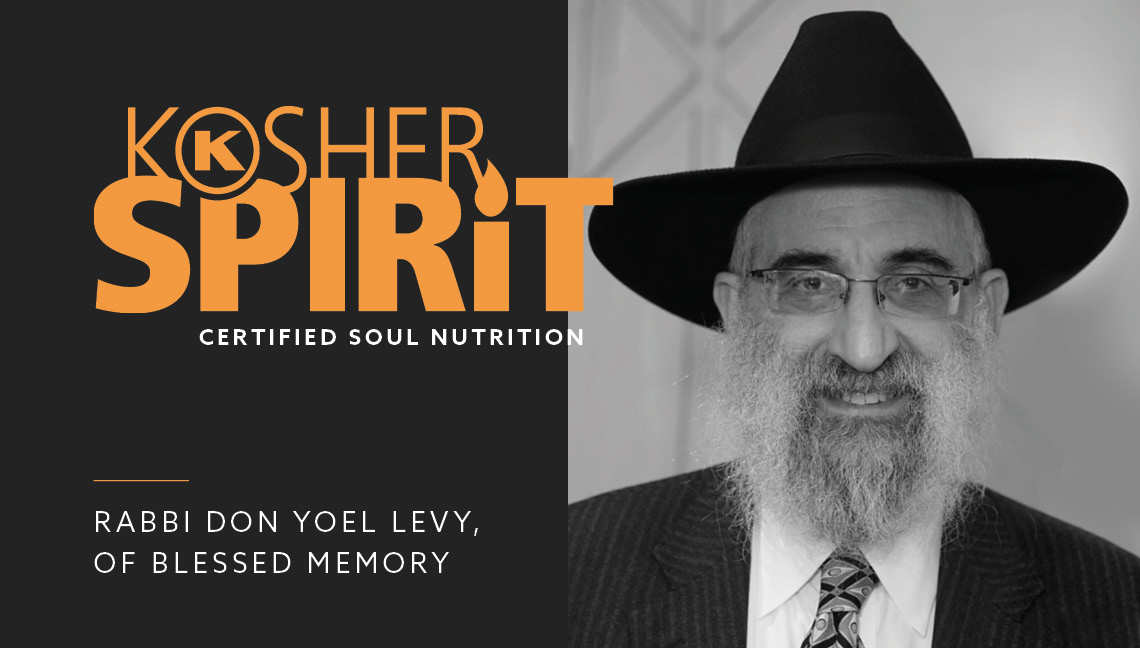I did not meet Rabbi Levy until we were both serving as members of the AKO executive, that would be about 1987–1988—a long time ago, even eons ago, in terms of kashrus in America. It took me a long time to figure out what was so different about Rabbi Levy when it came to kashrus matters, both organizational and personal. As a point of reference, I remember attending Rav Aharon Kotlar z’tl’s levaya in December, 1962, and the hesped of the Satmar Rav, R’ Yoilish, z’tl. Of all the things the Satmar Rav could say about Rav Aharon, and there were many, he chose to speak of only one: מלמד על אהרן שלא שינה the greatness—the gadlus of Aharon (Hakohen) was that every time he lit the menorah in the mishkan, it was the same as the first. No change, nothing extraneous, no distractions, and no excuses. That’s not simple, or automatic at all—in representing Klal Yisroel before Hashem. No change. The Satmar Rav was remarking on his understanding that ratzon Hashem was always before Rav Aharon, and in his avodah—.מלמד על אהרן שלא שינה
Rabbi Levy was also of that cloth— שלא שינה. He cared to do things right—completely right; he would patiently work even years on an issue until it was indeed made right. Often, he would be the lonely voice, because he focused only on the halacha/kashrus element, while others also factored in external matters. These kinds of calculations never moved him to create so called ‘nuanced’ approaches. He would remain apart in his adherence to principle. Over time, many came to see it his way. Those who did not, remained respectful of his integrity and consistency.
So, more than a great ירושה Rav Levy leaves a great מורשה! What is the difference between these two words? ירושה means ‘inheritance’ and מורשה means ‘heritage’. An inheritance is yours to do as you please. A heritage is yours only to pass it on as you received it, without change. May all the family continue in Rav Levy’s derech in avodas Hashem; he will surely continue working “upstairs” for the family, and all Klal Yisroel as a מליץ יושר.





